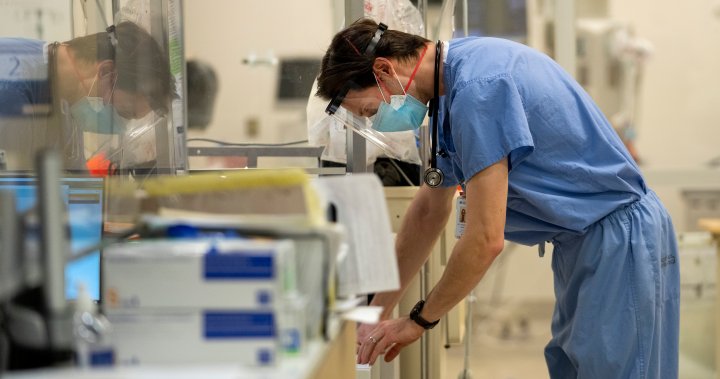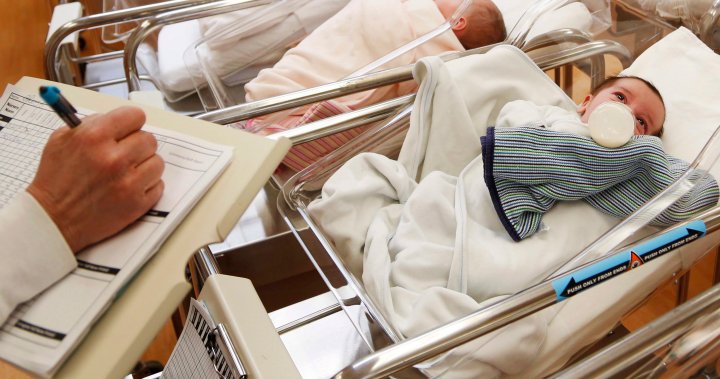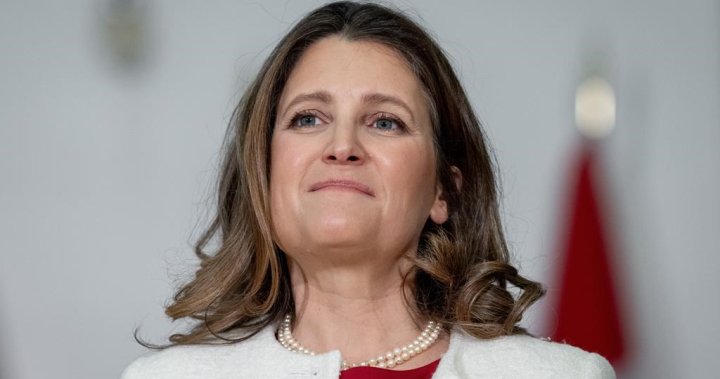With the unveiling of the 2024 federal budget just around the corner, Canadians may be anxiously awaiting insights into the government’s plans for tackling the ongoing strains on the nation’s health-care system.
The federal budget is set to be tabled Tuesday, with the Liberal government already unveiling plans for a national food program as well as the final province recently signing onto Ottawa’s new health-care deal worth $196.1 billion over 10 years.
But amid a backdrop of doctor shortages and enduring wait times in emergency rooms, the Canadian Medical Association (CMA) warned that without proper investment from all levels of government, the country’s health-care system will continue to struggle to meet the needs of patients.
“More than six million Canadians are without access to primary care,” CMA president Dr. Kathleen Ross told Global News. “Lengthy wait times (are) ongoing for surgeries and diagnostics and other life-saving treatments. And our emergency departments continue to struggle with high volume and operating routinely beyond capacity. Solutions need to keep coming.”
On Wednesday, the CMA released a statement urging the federal government to ensure budget investments are aimed at addressing the gaps in the health system, such as putting more funds toward team-based medical care, scaling virtual care and reducing administrative burdens.
Ross acknowledges there are a lot of competing priorities in the budget, such as education, housing and food security, but believes all of these sectors tie together with health.
“They’re not siloed, but breaking down and understanding where health-care dollars are, what we expect from our health-care dollars and tying it together with the greater investments the government makes this year is all critically important,” she told Global News.
Federal Health Minister Mark Holland said he believes the upcoming budget will help alleviate the strained conditions facing Canada’s health-care system. He emphasized the government’s commitment to swiftly address these issues, stating, “That’s why we’re sprinting, not running to get this work done.”
Speaking with Global News in an interview Thursday, Holland said he couldn’t give away exactly what is in the budget, but he couldn’t be more excited about some of the details already announced, such as the food school program.
The latest health and medical news
emailed to you every Sunday.
On April 1, the Liberal government announced it would fund $1 billion over the next five years for a national school food program in the upcoming budget. The goal is to feed an additional 400,000 children a year by expanding programs offered by provinces and school boards.
“The ability of a child to get a healthy meal, how that changes their health, how they develop a taste for healthy food like vegetables and fruit, it changes their whole life,” Holland said. “And it means that this wave of childhood mental health that we’re seeing, we can push back against that. That’s going to save us so much money and it’s going to mean so many good outcomes for our youth.”
Holland also underscored recent milestones in health care, including the new pharmacare agreement that includes coverage for birth control and diabetes medication.
He expressed hope that the recent bilateral agreements signed by all provinces and territories will result in every Canadian having access to a family doctor, and will help alleviate backlogs in the system.
“We can see a path to address some of the problems we have in primary care and to address some of the problems we have in prevention,” Holland said. “We’re not going to get to paradise overnight. But this shows incremental progress every day showing improvement in our health system every day.”
He added that despite its flaws, he believes Canada already has an “outstanding, if not the best health system in the world.”
However, Ross disagrees with this, stating that after years of neglect, the health-care system needs more collaboration and investment to address the crisis.
“Compared to other equivalent OECD (Organization for Economic Co-operation and Development) nations, Canada does have fewer health-care providers across the board. We have fewer acute care beds, and we are struggling with access to care in a way that isn’t the same everywhere,” she said.
She hopes the upcoming budget will ensure investments will continue to address the gaps and said the CMA is asking for “ongoing substantial investment.”
This includes “targeting measurable results that we can actually follow over the coming year, improving access to care, improving the working conditions for physicians, and really modernizing our health-care system. These goals are critically important today,” she said.
Ross also believes it will take years to build health-care solutions, and ongoing commitment from the government is needed.
“We just can’t let our foot off the gas,” she said.
“This challenge has been decades in the making, and health care has been underfunded and under-resourced for quite a long time. We’re overdue for transformation in how we share, collect and house data. We’re overdue for modernizing how we deliver care through team-based care.”
— with files from Global News’ Touria Izri and Katherine Ward
© 2024 Global News, a division of Corus Entertainment Inc.




